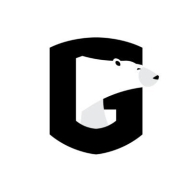

SonarQube Cloud and GuardRails compete in code quality and security analysis. SonarQube Cloud has the upper hand for extensive code inspection capabilities, while GuardRails is preferred for its targeted security insights.
Features: SonarQube Cloud offers advanced code quality tools, broad language support, and seamless integration capabilities. GuardRails provides powerful vulnerability detection tools, continuous security monitoring, and a focused approach to application protection.
Ease of Deployment and Customer Service: SonarQube Cloud ensures straightforward cloud-based deployment, integrating easily into existing CI/CD pipelines with reliable customer support. GuardRails provides deployment flexibility in both cloud and on-premises environments, emphasizing strong customer service with tailored support options.
Pricing and ROI: SonarQube Cloud presents a competitive pricing structure aligned with its comprehensive features, promising an enhanced ROI through improved code quality. GuardRails offers a strong ROI by focusing on security and reducing breach-related costs, with variable pricing contingent on deployment choices.

GuardRails offers an efficient way to enhance application security within development workflows by integrating seamlessly with tools developers already use, ensuring vulnerabilities are caught early in the development cycle.
GuardRails acts as an automated guard against security flaws within coding projects. By embedding itself into development environments, it identifies potential risks without disrupting workflow. Its flexibility allows integration with multiple platforms, providing comprehensive coverage. The agile configuration addresses specific security needs, fitting seamlessly into the fast-paced needs of modern software development teams.
What features make GuardRails valuable?GuardRails implementation varies across industries by focusing on domain-specific security challenges. In finance, it helps safeguard sensitive customer data through early vulnerability detection. In healthcare, GuardRails supports compliance with strict regulatory standards, protecting patient information while maintaining workflow efficiency.
SonarQube Cloud offers static code analysis and application security testing, seamlessly integrating into CI/CD pipelines. It's a vital tool for identifying vulnerabilities and ensuring code quality before deployment.
SonarQube Cloud is widely used for its ability to integrate with tools like GitHub, Jenkins, and Bitbucket, providing critical feedback at the pull request level. It's designed to help organizations maintain clean code by acting as a quality gate. This service supports development methodologies including sprints and Kanban for ongoing vulnerability management. While appreciated for its dashboard and integration capabilities, some users find initial setup challenging and note the need for enhanced documentation. The recent addition of mono reports and microservices support offers deeper insights into security and code quality, though container testing limitations and false positives are noted drawbacks. Manual intervention is sometimes required to address detailed reporting, with external tools being necessary for comprehensive analysis. Notifications for larger teams during serious issues and streamlined integration of new features are also areas of improvement.
What are the key features of SonarQube Cloud?In specific industries, SonarQube Cloud finds application in finance and healthcare where code integrity and security are paramount. It allows teams to identify critical vulnerabilities early and ensures that software development aligns with industry regulations and standards. By continuously analyzing code, it aids organizations in deploying secure and reliable applications, fostering trust and compliance.
We monitor all Static Application Security Testing (SAST) reviews to prevent fraudulent reviews and keep review quality high. We do not post reviews by company employees or direct competitors. We validate each review for authenticity via cross-reference with LinkedIn, and personal follow-up with the reviewer when necessary.